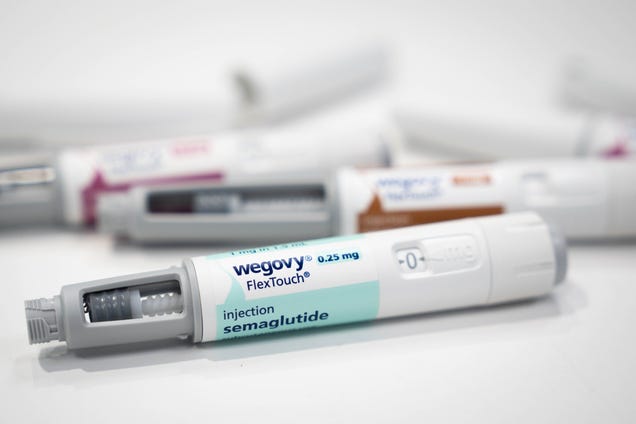Ozempic and other weight loss drugs aren’t lowering health care costs yet
In This Story
GLP-1 drugs like Wegovy (NVO-1.84%) might help with weight loss, but they aren’t leading to lower health care costs yet, according to a new analysis of U.S. health insurance claims.
Suggested Reading
How AI is helping advertisers pinpoint exactly what we want
Suggested Reading
A review by pharmacy benefit manager Prime Therapeutics, and reported by Reuters, found that patients with obesity incurred average annual medical costs of $18,507 two years after starting GLP-1 drugs, a 46% increase from before they were on the drugs. For comparison, medical costs for a control group not using GLP-1 drugs rose by 14% over the same period.
The analysis found that prescription drug costs were the primary driver of these increases, with other medical expenses also rising during the two years on the drug. It showed no reduction in obesity-related medical events — such as heart attacks, strokes, and type 2 diabetes diagnoses, compared to the control group.
GLP-1 drugs, which mimic a hormone that regulates appetite and blood sugar, have become highly sought after as treatments for obesity and Type 2 diabetes. Demand for these medications has turned Novo Nordisk and Eli Lilly (LLY-1.61%) — the producer of Mounjaro and Zepbound, both GLP-1 drugs for diabetes and weight loss — into the largest pharma companies in the world.
Ozempic and prescription weight loss drugs: How they work, what they cost, side effects, and everything to know
However, many U.S. employers and government insurance programs have been hesitant to cover these medications due to their high initial costs and uncertainty about long-term savings.
Prime Therapeutics analyzed the pharmacy and medical claims of 3,046 commercially insured patients who received new GLP-1 prescriptions for obesity in 2021, excluding those already diagnosed with type 2 diabetes. Among the GLP-1 users, 46% were taking Wegovy or Ozempic, while others were on Saxenda, Victoza, Rybelsus, or Lilly’s Trulicity. Newer drugs, such as Eli Lilly’s Mounjaro and Zepbound, were not included since they launched after study started.
The analysis also highlighted adherence challenges. Only 25% of patients who were prescribed Wegovy or Ozempic for weight loss were still taking the medication two years later. This low adherence rate makes it challenging to replicate the results shown in clinical trials, according to Prime Therapeutics VP for pharmacy clinical services David Lassen.
“I don’t think it’s fully conclusive at this point,” Lassen told Reuters (TRI 0.03%). He noted that more data and time may be necessary to fully gauge the costs.
“We want to do everything possible to help individuals achieve the positive outcomes of being on this medication,” Lassen said. “But if we determine there is not a positive outcome with our data and there is not a return on investment, that will be an inflection point ahead that we will have to consider.”
Prime’s assistant VP for health outcomes Patrick Gleason estimated that GLP-1 drugs will cost employers and insurers about $11,200 more per patient over the first two years, despite discounts and rebates.
The company said that fewer than 20% of its members have coverage for these weight-loss drugs. Still, it supports clients who choose to cover GLP-1s when combined with lifestyle modification programs.
Prime manages pharmacy benefits for about 38 million people and is owned by 19 U.S. Blue Cross and Blue Shield health insurance plans.





